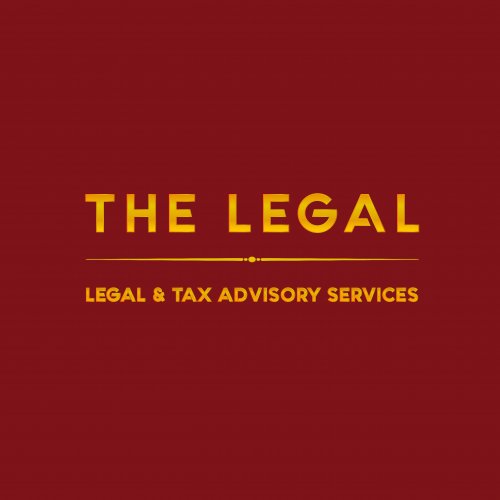Best Data Center & Digital Infrastructure Lawyers in Thailand
Share your needs with us, get contacted by law firms.
Free. Takes 2 min.
Or refine your search by selecting a city:
List of the best lawyers in Thailand
Legal guides written by Smart Legal Solutions:
- Main Legal Measures to Protect Foreign Investment in Thailand
- The importance of the geographical indications for the Thai economy
Legal guides written by Mahanakorn Partners Group Co., Ltd:
- Thailand Strengthens Anti-Money Laundering Laws with New Amendments
- Recent Updates to Thailand’s Long-Term Resident (LTR) Visa and SMART Visa Programs
- Managing Risks in Public-Private Partnership Projects
About Data Center & Digital Infrastructure Law in Thailand
Data centers and digital infrastructure play a crucial role in Thailand's rapidly developing digital economy. These facilities are the backbone of cloud computing, online data storage, and internet services for both private and public sectors. As businesses migrate their operations to digital platforms, the need for reliable, secure, and legally compliant data centers has grown significantly. Thai law addresses the construction, operation, and management of data centers, focusing on areas such as data privacy, cybersecurity, investment regulation, and real estate usage. Understanding the legal framework is essential for any company or individual establishing or using data center services within Thailand.
Why You May Need a Lawyer
Engaging a lawyer who specializes in data center and digital infrastructure law can be critical in several scenarios. Common reasons include:
- Negotiating and drafting contracts for data center construction, leasing, or service agreements
- Assisting with compliance related to data protection and privacy laws
- Advising on foreign investment restrictions and BOI (Board of Investment) incentives
- Dealing with disputes related to service downtime, data loss, or breaches
- Navigating zoning and real estate issues for building or expanding data infrastructure
- Ensuring compliance with IT and telecommunications regulations imposed by local authorities
- Responding to government requests for data or involvement in regulatory investigations
Given the complexity and evolving nature of digital infrastructure regulation, legal guidance can help you avoid costly mistakes and ensure long-term operational success.
Local Laws Overview
Thailand’s legislative landscape related to data centers and digital infrastructure encompasses a range of statutes and government regulations. The most relevant are:
- Personal Data Protection Act (PDPA) - Sets out requirements for collecting, processing, and storing personal data. Data centers must meet strict privacy and security standards when handling personal information.
- Cybersecurity Act - Imposes obligations on operators of critical information infrastructure, including certain data center operators, to implement cybersecurity measures and report incidents.
- Telecommunications Business Act - Governs licensing and operations for entities offering internet and related communications services, which may include data centers depending on the service scope.
- Investment Promotion Act - Data centers can benefit from incentives provided by the BOI, making certain projects eligible for tax and non-tax privileges.
- Building Control Laws and Zoning Regulations - Local ordinances regulate where data centers can be located and the technical requirements for construction and operation.
Keeping up with these and other local regulations is vital to ensuring continued, compliant operation of data centers and associated infrastructure in Thailand.
Frequently Asked Questions
What is considered a data center under Thai law?
A data center is generally defined as a facility used to house computer systems, storage systems, and associated components, often providing cloud or internet services. The definition may vary depending on regulatory context, so legal advice is recommended for clarity.
Do I need a license to operate a data center in Thailand?
Some data center activities may require licenses, especially if offering public cloud computing or internet services. Telecommunication licenses may be necessary depending on the business model. Consult with a specialist to determine your specific license requirements.
How does the Personal Data Protection Act (PDPA) affect data centers?
The PDPA imposes strict rules on organizations that collect, use, or store personal data. Data centers must implement appropriate security measures, ensure customer consent, and facilitate data subject rights in accordance with the law.
Are there restrictions for foreign investors owning data centers?
Foreign ownership in certain types of data center businesses may be subject to limitations under the Foreign Business Act unless promoted by the BOI or otherwise exempted. Careful legal structuring is necessary for foreign investors.
Can data center operators transfer data outside Thailand?
Cross-border data transfers are subject to PDPA provisions, which require appropriate safeguards and, in some cases, regulatory approval or agreements to ensure protection of personal data.
What incentives are available for data center investments?
The BOI offers incentives such as tax holidays, exemption from import duties, and permission for land ownership for promoted data center projects. These incentives can significantly reduce setup and operational costs.
What are the main cybersecurity obligations for data centers?
Under the Cybersecurity Act, data centers classified as critical information infrastructure must implement cyber risk management, conduct incident reporting, and cooperate with authorities during investigations or security incidents.
Can data center agreements be based on international standards?
Yes, many contracts and operational standards align with international norms, but they must also be compatible with Thai law and local regulatory requirements. Legal review is advised.
How are disputes involving data centers typically resolved?
Disputes may be settled through negotiation, mediation, arbitration, or litigation, depending on contract terms and the nature of the disagreement. Choosing dispute resolution clauses in advance is recommended.
Do environmental regulations apply to data center facilities?
Yes, large-scale projects may need environmental impact assessments and compliance with energy efficiency and waste management regulations. Early legal review can help navigate these obligations.
Additional Resources
For further information and assistance, consider reaching out to these key organizations and resources:
- Office of the Personal Data Protection Committee (PDPC)
- Office of the National Cyber Security Committee (NCSC)
- Board of Investment (BOI) of Thailand
- National Broadcasting and Telecommunications Commission (NBTC)
- Ministry of Digital Economy and Society
- The Thai Data Center Council (TDCC)
These bodies provide official guidance, regulatory updates, and, in some cases, direct support to businesses in the data center and digital infrastructure industries.
Next Steps
If you need legal assistance regarding data centers or digital infrastructure in Thailand, consider the following steps:
- Identify the specific issue or decision for which you need legal guidance - for example, contract drafting, licensing, or compliance reviews
- Collect and organize relevant documents, such as business plans, current contracts, and regulatory correspondence
- Seek out a law firm or legal professional with experience in technology, digital infrastructure, and Thai regulatory matters
- Arrange an initial consultation to discuss your objectives and challenges
- Work collaboratively with your legal advisor to ensure full compliance, successful project implementation, and effective risk management
Early legal involvement is often the best way to prevent complications and build a robust, sustainable data center or digital infrastructure project in Thailand.
Lawzana helps you find the best lawyers and law firms in Thailand through a curated and pre-screened list of qualified legal professionals. Our platform offers rankings and detailed profiles of attorneys and law firms, allowing you to compare based on practice areas, including Data Center & Digital Infrastructure, experience, and client feedback.
Each profile includes a description of the firm's areas of practice, client reviews, team members and partners, year of establishment, spoken languages, office locations, contact information, social media presence, and any published articles or resources. Most firms on our platform speak English and are experienced in both local and international legal matters.
Get a quote from top-rated law firms in Thailand — quickly, securely, and without unnecessary hassle.
Disclaimer:
The information provided on this page is for general informational purposes only and does not constitute legal advice. While we strive to ensure the accuracy and relevance of the content, legal information may change over time, and interpretations of the law can vary. You should always consult with a qualified legal professional for advice specific to your situation.
We disclaim all liability for actions taken or not taken based on the content of this page. If you believe any information is incorrect or outdated, please contact us, and we will review and update it where appropriate.
Browse data center & digital infrastructure law firms by city in Thailand
Refine your search by selecting a city.

















